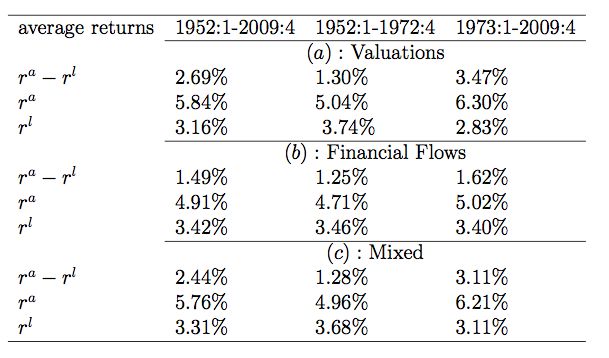- mysql禁用远程登录
igotyback
mysql
去mysql库中的user表里,将host都改成localhost之后刷新权限FLUSHPRIVILEGES;
- You have an error in your SQL syntax; check the manual that corresponds to your MySQL server version
努力的菜鸟~
sql数据库
YouhaveanerrorinyourSQLsyntax;checkthemanualthatcorrespondstoyourMySQLserverversionfortherightsyntaxtousenear‘IDENTIFIEDBY‘123456’WITHGRANTOPTION’atline1在mysql5.7之前GRANTALLPRIVILEGESON*.*TO'root'@'%'I
- 3. 测试Docker镜像
jcfszxc
RKNN系列RKNNrknn-toolkit2
运行命令进入Docker镜像:dockerrun-t-i--privileged\-v/dev/bus/usb:/dev/bus/usb\-v/path/to/your/project:/examples\rknn-toolkit2:2.1.0-cp38\/bin/bash参数解释:dockerrun:这是Docker的基本命令,用于创建和启动一个新的容器。-t:分配一个伪终端(pseudo-TT
- centos上开启mysql远程访问功能
lllljz
centosmysqllinux
自从mysql8以后,mysql有些命令变了,例如授权需要分成好几行。如果想远程访问mysql,那么可以这样做:mysql-uroot-pmysql//先登录mysqlcreateuser'root'@'%'identifiedby'你自己的密码';//先建立一个root用户和密码grantallprivilegeson*.*to'root'@'%'withgrantoption;//每一句都别忘
- Oracle中的系统权限和对象权限
杨天赐
OracledeleteinsertoracleOracleORACLEreferenceReference数据库
Oracle中的系统权限和对象权限系统权限的定义:系统权限(systemprivilege):指在系统级控制数据库的存取和使用的机制,即执行某种SQL语句的能力。如,是否能启动、停止数据库,是否能修改数据库参数,是否能连接到数据库,是否能创建、删除、更改方案对象(如表、索引、视图、过程)等。它一般是针对某一类方案对象或非方案对象的某种操作的全局性能力。提示”没有系统权限的用户实际上是个连登录能力都
- risc-v特权模式
狮子座硅农(Leo ICer)
risc-v
risc-v架构定义了3种工作模式,又称为特权模式(privilegedmode)。机器模式(machinemode),简称M模式;监督模式(supervisormode),简称S模式;用户模式(usermode),简称U模式。risc-v架构定义机器模式为必选模式,另外两种模式为可选模式,通过不同的模式组合可以实现不同的系统。risc-v架构支持几种不同的存储器地址管理机制,包括对物理地址和虚拟
- 因 Mysql root 密码过于简单导致 Mysql 连接失败的解决方法
bigdata-rookie
MySqlmysql数据库
问题:Accessdeniedforuser‘root’@‘192.168.xx.xx’(usingpassword:YES)用户“root”@“192.168.xx.xx”的访问被拒绝(使用密码:YES)解决方法:1、使用root用户登录mysql,通过下面的命令给root用户设置权限即可解决。($yourpassword替换为自己的root密码)GRANTALLPRIVILEGESON*.*T
- MySQL添加用户、为用户分配权限
ChenyuMa
添加用户1.允许本地访问的用户(127.0.0.1)createuserzhrt@localhostidentifiedby'123456';2.允许外网IP访问的用户createuser'zhrt'@'%'identifiedby'123456';用户分配权限授予用户在本地服务器对该数据库的全部权限grantallprivilegesondbname.*tozhrt@localhostident
- oracle sys/as,sqlplus sys/oracle@orcl as sysdba无法登录
吕驰宇
oraclesys/as
(1)现象$sqlplusassysdbaSQL*Plus:Release11.2.0.1.0Productionon星期一3月3020:50:082015Copyright(c)1982,2009,Oracle.Allrightsreserved.ERROR:ORA-01031:insufficientprivileges请输入用户名:(2)原因分析查看一下listener.ora$cd/u01
- 【Oracle点滴积累】Error ORA-01031 Insufficient Privileges
OptimizationMaster
Oracleoracle数据库
广告位招租!知识无价,人有情,无偿分享知识,希望本条信息对你有用!现象:sqlplus/assysdbaora-01031:insufficientprivileges1.检查sqlnet.ora文件sqlnet.ora文件损坏或格式不对可以导致出现该问题。sqlnet.ora文件可能存放路径为$ORACLE_HOME/network/admin/sqlnet.ora或$HOME/sqlnet.o
- NanoPC-T6安装redriod笔记
顶点元
NanoPC-T6redroid
这里主要用于自己对安装过程的记录,中间可能记录比较粗糙。重新编译内核参考链接:【环境搭建】基于linux的NanoPC-T6_LTS系统固件编译环境搭建基于docker构建编译环境dockerrun-it\--privileged=true--cap-add=ALL\--namenanopc_t6_lts_env\-v/hdd_4t/nanopc_t6_lts_sdk:/work\-v/lib/m
- 华为设备ENSP-AAA认证配置
Z7·
网络运维华为
服务端配置:1.配置接口略2.服务端创建用户system-view[Huawei]aaa[Huawei-aaa]local-useradminpasswordcipheradmin123//创建用户名和密码[Huawei-aaa]local-useradminprivilegelevel15//配置用户级别(最大15)[Huawei-aaa]local-useradminservice-typet
- Oracle(96)什么是对象权限(Object Privilege)?
辞暮尔尔-烟火年年
Oracleoracle数据库
对象权限(ObjectPrivilege)是在Oracle数据库中允许用户对特定的数据库对象(如表、视图、序列等)执行特定操作的权限。这些权限控制用户对数据库对象的访问和操作能力。对象权限通常包括SELECT、INSERT、UPDATE、DELETE、EXECUTE等。对象权限的类型常见的对象权限包括但不限于:SELECT:允许用户查询对象中的数据。INSERT:允许用户向对象中插入数据。UPDA
- PostgreSQL初始化数据库和用户
亚林瓜子
数据库postgresql
#登录数据库psql-Upostgres#创建数据库postgres=#createdatabase;CREATEDATABASE#撤销掉数据库的public权限postgres=#REVOKEALLPRIVILEGESONDATABASEFROMPUBLIC;#创建用户postgres=#createuserwithencryptedpassword'';CREATEROLE#授权数据库所有权限
- 每天一个单词,一起来学习吧!
紫央
privilege特权,优惠,特许,荣幸;给予优惠,给予特权例:Educationshouldnotbeconsideredtobeaprivilegeinamodernsociety.在现代社会中,受教育不应该被看成是一种特权。Ourmembershavetheprivilegeofusingthelendingserviceofthelibrary.我们的会员享有图书馆借书服务的特权。同义词:
- WEB渗透Win提权篇-RDP&Firewall
Pluto-2003
渗透测试渗透测试网络安全WEB安全WEB渗透提权
渗透测试60w字全套md笔记:夸克网盘分享爆破RDPHydra爆破RDP>hydra-ladmin-P/root/Desktop/passwords-S192.168.0.0rdpNlbruteMSF开启>runpost/windows/manage/enable_rdp多用户登陆Mimikatz设置允许多用户登录>privilege::debug>ts::multirdprdpwrapGitHu
- 【记录】基于docker部署小熊派BearPi-Pico H3863开发环境
Lozenyi
开发环境的搭建docker嵌入式硬件c语言
参考:Ubuntu环境下开发环境搭建|小熊派BearPi过程在物理机中创建一个工作路径/home/luo/locke/BearPi/BearPi_Pico_H3863创建docker容器dockerrun-it\--privileged=true--cap-add=ALL\--nameBearPi-Pico_H3863_env\-v/home/luo/locke/BearPi/BearPi_Pic
- 【环境搭建】基于linux的NanoPC-T6_LTS系统固件编译环境搭建
Lozenyi
开发环境的搭建嵌入式LinuxRK3588开发环境系统固件生成
基于Linux环境的T6-LTS系统固件编译环境搭建实际上是Ubuntu过程创建容器dockerrun-it\--privileged=true--cap-add=ALL\--namenanopc_t6_lts_env\-v/hdd_4t/nanopc_t6_lts_sdk:/work\-v/lib/modules:/lib/modules\-v/dev:/dev\ubuntu:20.04/bin
- 【Android】AOSP 架构
吴同学是个程序员
Androidandroidaosp安卓安卓架构
Android官网对AOSP结构图进行了更新,如下所示:Android应用(AndroidApps)完全使用AndroidAPI开发的应用。在某些情况下,设备制造商可能希望预安装Android应用以支持设备的核心功能。特权应用(PrivilegedApps)使用Android和系统API组合创建的应用。这些应用必须作为特权应用预安装在设备上。设备制造商应用(DeviceManufacturerAp
- Centos7 远程无法连接mysql数据库
给我丶鼓励
MysqlLinuxcentoscentosmysql数据库
以下方法就是我在碰到远程连接不到Mysql数据库后试过的方法,最终也是解决掉了问题。所以总结一下。有两种原因数据库没有授权服务器防火墙没有开放3306端口数据库没有授权对于mysql数据库没有授权,只需要用一条命令就可以了。mysql>GRANTALLPRIVILEGESON*.*TO'root'@'%'IDENTIFIEDBY'123456'WITHGRANTOPTION;//远程连接数据库的时
- Docker安装mysql、redis、rabbitmq
星三火
dockermysqlredis
【docker安装mysql】dockerpullmysql:latestdockerimagesdockerrun-p3306:3306--namemysql--restart=always--privileged=true\-v/usr/local/mysql/log:/var/log/mysql\-v/usr/local/mysql/data:/var/lib/mysql\-v/usr/lo
- PostgreSQL创建只读用户
dhiivgzni65686145
数据库
创建用户及指定密码:CREATEUSERreadonlyWITHENCRYPTEDPASSWORD'ropass';设置用户默认事务只读:alteruserreadonlysetdefault_transaction_read_only=on;赋予用户权限,查看public模式下所有表:GRANTUSAGEONSCHEMApublictoreadonly;ALTERDEFAULTPRIVILEGE
- docker搭建git服务器
一只勤奋爱思考的猪
dockergit服务器
1、docker搭建git服务器总体思路:服务端通过docker搭建git服务器,客户端创建git的账户及公钥密钥;1)服务端#创建容器#--privileged获得完整的root权限#/usr/sbin/init启动容器执行的第一个命令以便可以使用systemctl命令#将容器的ssh服务22端口映射到宿主的65002端口dockerrun-itd--privileged=true--namem
- windows11 docker 安装mysql、redis、rabbitmq、nginx
像风一样爱自由
Dockerrabbitmqdockermysql
mysqldockerrun-d--privileged=true--restart=always--namemysql-v/d/Docker/MySQL/data:/var/lib/mysql-v/d/Docker/MySQL/log:/var/log/mysql-p3306:3306-eTZ=Asia/Shanghai-eMYSQL_ROOT_PASSWORD=123456mysql--cha
- MySQL(1/3)
yrpyy
mysql数据库
基本命令行操作命令行连接mysql-uroot-p回车,然后在下一行输入密码,或者直接在p后写密码修改密码updatamysql.usersetauthentication_string=password('原密码')whereuser='root'andHost='localhost';刷新权限flushprivileges;查看所有数据库showdatabases;切换数据库use数据库名成功
- MongoDB common command
cn_lyg
mongodb数据库
目录1.Showallexisteddb2.Showallexistedusers3.Showuser'sroles4.Viewcurrentdbname5.CreateorSwitchdb6.Grantprivilegeforauser6.1.Commonuser6.2.Adminuser6.3.AppendprivilegeforMongodbcompass7.Setacollectionin
- OpenStack控制节点keystone服务安装部署
于飞_d529
创建数据库使用root账户登录数据库sudomysql创建keystone数据库createdatabasekeystone设置数据库本地与远程访问的权限GRANTALLPRIVILEGESONkeystone.*TO'keystone'@'localhost'\IDENTIFIEDBY'KEYSTONE_DBPASS';GRANTALLPRIVILEGESONkeystone.*TO'keyst
- 在docker中部署elasticsearch-head
燃灯工作室
Elasticsearch
1.拉取elasticsearch-headdockerpullmobz/elasticsearch-head:52.启动elasticsearch-headdockerrun--privileged=true--restart=always--net=randeng_network--ip192.168.1.61--nameelasticsearch--name=elasticsearch-he
- 日记 2022年5月31日
温登云
今天是我来到这个期货公司的第七天,依旧在看书学习。我的心情依旧时好时坏,主要是焦虑,不知道为什么不想做事,每天的时光都在焦虑中度过,我不知道这是因为疾病复发的原因还是大家都这样焦虑,我是真的感觉我比别人要痛苦,怎么办呢?唉我多希望有一个平淡的日子可以过,不需要大富大贵,有一份稳定的收入即可,目前我还没有那个privilege去考虑感情生活,毕竟工作没有稳定,谁会看得上我。昨天我妈的脚扭了,我去给她
- mysql新建用户
后来_16db
sudomysql-uroot-p你的密码//使用mysql这个数据库usemysql;//创建用户createuser'用户名'@'localhost'identifiedby'密码';//授予该用户在所有数据库的所有表的权限grantallprivilegeson*.*to'用户名'@'密码';//刷新权限表flushprivileges;//查看结果selectUser,Host,plugi
- PHP,安卓,UI,java,linux视频教程合集
cocos2d-x小菜
javaUIPHPandroidlinux
╔-----------------------------------╗┆
- 各表中的列名必须唯一。在表 'dbo.XXX' 中多次指定了列名 'XXX'。
bozch
.net.net mvc
在.net mvc5中,在执行某一操作的时候,出现了如下错误:
各表中的列名必须唯一。在表 'dbo.XXX' 中多次指定了列名 'XXX'。
经查询当前的操作与错误内容无关,经过对错误信息的排查发现,事故出现在数据库迁移上。
回想过去: 在迁移之前已经对数据库进行了添加字段操作,再次进行迁移插入XXX字段的时候,就会提示如上错误。
&
- Java 对象大小的计算
e200702084
java
Java对象的大小
如何计算一个对象的大小呢?
- Mybatis Spring
171815164
mybatis
ApplicationContext ac = new ClassPathXmlApplicationContext("applicationContext.xml");
CustomerService userService = (CustomerService) ac.getBean("customerService");
Customer cust
- JVM 不稳定参数
g21121
jvm
-XX 参数被称为不稳定参数,之所以这么叫是因为此类参数的设置很容易引起JVM 性能上的差异,使JVM 存在极大的不稳定性。当然这是在非合理设置的前提下,如果此类参数设置合理讲大大提高JVM 的性能及稳定性。 可以说“不稳定参数”
- 用户自动登录网站
永夜-极光
用户
1.目标:实现用户登录后,再次登录就自动登录,无需用户名和密码
2.思路:将用户的信息保存为cookie
每次用户访问网站,通过filter拦截所有请求,在filter中读取所有的cookie,如果找到了保存登录信息的cookie,那么在cookie中读取登录信息,然后直接
- centos7 安装后失去win7的引导记录
程序员是怎么炼成的
操作系统
1.使用root身份(必须)打开 /boot/grub2/grub.cfg 2.找到 ### BEGIN /etc/grub.d/30_os-prober ### 在后面添加 menuentry "Windows 7 (loader) (on /dev/sda1)" {
- Oracle 10g 官方中文安装帮助文档以及Oracle官方中文教程文档下载
aijuans
oracle
Oracle 10g 官方中文安装帮助文档下载:http://download.csdn.net/tag/Oracle%E4%B8%AD%E6%96%87API%EF%BC%8COracle%E4%B8%AD%E6%96%87%E6%96%87%E6%A1%A3%EF%BC%8Coracle%E5%AD%A6%E4%B9%A0%E6%96%87%E6%A1%A3 Oracle 10g 官方中文教程
- JavaEE开源快速开发平台G4Studio_V3.2发布了
無為子
AOPoraclemysqljavaeeG4Studio
我非常高兴地宣布,今天我们最新的JavaEE开源快速开发平台G4Studio_V3.2版本已经正式发布。大家可以通过如下地址下载。
访问G4Studio网站
http://www.g4it.org
G4Studio_V3.2版本变更日志
功能新增
(1).新增了系统右下角滑出提示窗口功能。
(2).新增了文件资源的Zip压缩和解压缩
- Oracle常用的单行函数应用技巧总结
百合不是茶
日期函数转换函数(核心)数字函数通用函数(核心)字符函数
单行函数; 字符函数,数字函数,日期函数,转换函数(核心),通用函数(核心)
一:字符函数:
.UPPER(字符串) 将字符串转为大写
.LOWER (字符串) 将字符串转为小写
.INITCAP(字符串) 将首字母大写
.LENGTH (字符串) 字符串的长度
.REPLACE(字符串,'A','_') 将字符串字符A转换成_
- Mockito异常测试实例
bijian1013
java单元测试mockito
Mockito异常测试实例:
package com.bijian.study;
import static org.mockito.Mockito.mock;
import static org.mockito.Mockito.when;
import org.junit.Assert;
import org.junit.Test;
import org.mockito.
- GA与量子恒道统计
Bill_chen
JavaScript浏览器百度Google防火墙
前一阵子,统计**网址时,Google Analytics(GA) 和量子恒道统计(也称量子统计),数据有较大的偏差,仔细找相关资料研究了下,总结如下:
为何GA和量子网站统计(量子统计前身为雅虎统计)结果不同?
首先:没有一种网站统计工具能保证百分之百的准确出现该问题可能有以下几个原因:(1)不同的统计分析系统的算法机制不同;(2)统计代码放置的位置和前后
- 【Linux命令三】Top命令
bit1129
linux命令
Linux的Top命令类似于Windows的任务管理器,可以查看当前系统的运行情况,包括CPU、内存的使用情况等。如下是一个Top命令的执行结果:
top - 21:22:04 up 1 day, 23:49, 1 user, load average: 1.10, 1.66, 1.99
Tasks: 202 total, 4 running, 198 sl
- spring四种依赖注入方式
白糖_
spring
平常的java开发中,程序员在某个类中需要依赖其它类的方法,则通常是new一个依赖类再调用类实例的方法,这种开发存在的问题是new的类实例不好统一管理,spring提出了依赖注入的思想,即依赖类不由程序员实例化,而是通过spring容器帮我们new指定实例并且将实例注入到需要该对象的类中。依赖注入的另一种说法是“控制反转”,通俗的理解是:平常我们new一个实例,这个实例的控制权是我
- angular.injector
boyitech
AngularJSAngularJS API
angular.injector
描述: 创建一个injector对象, 调用injector对象的方法可以获得angular的service, 或者用来做依赖注入. 使用方法: angular.injector(modules, [strictDi]) 参数详解: Param Type Details mod
- java-同步访问一个数组Integer[10],生产者不断地往数组放入整数1000,数组满时等待;消费者不断地将数组里面的数置零,数组空时等待
bylijinnan
Integer
public class PC {
/**
* 题目:生产者-消费者。
* 同步访问一个数组Integer[10],生产者不断地往数组放入整数1000,数组满时等待;消费者不断地将数组里面的数置零,数组空时等待。
*/
private static final Integer[] val=new Integer[10];
private static
- 使用Struts2.2.1配置
Chen.H
apachespringWebxmlstruts
Struts2.2.1 需要如下 jar包: commons-fileupload-1.2.1.jar commons-io-1.3.2.jar commons-logging-1.0.4.jar freemarker-2.3.16.jar javassist-3.7.ga.jar ognl-3.0.jar spring.jar
struts2-core-2.2.1.jar struts2-sp
- [职业与教育]青春之歌
comsci
教育
每个人都有自己的青春之歌............但是我要说的却不是青春...
大家如果在自己的职业生涯没有给自己以后创业留一点点机会,仅仅凭学历和人脉关系,是难以在竞争激烈的市场中生存下去的....
&nbs
- oracle连接(join)中使用using关键字
daizj
JOINoraclesqlusing
在oracle连接(join)中使用using关键字
34. View the Exhibit and examine the structure of the ORDERS and ORDER_ITEMS tables.
Evaluate the following SQL statement:
SELECT oi.order_id, product_id, order_date
FRO
- NIO示例
daysinsun
nio
NIO服务端代码:
public class NIOServer {
private Selector selector;
public void startServer(int port) throws IOException {
ServerSocketChannel serverChannel = ServerSocketChannel.open(
- C语言学习homework1
dcj3sjt126com
chomework
0、 课堂练习做完
1、使用sizeof计算出你所知道的所有的类型占用的空间。
int x;
sizeof(x);
sizeof(int);
# include <stdio.h>
int main(void)
{
int x1;
char x2;
double x3;
float x4;
printf(&quo
- select in order by , mysql排序
dcj3sjt126com
mysql
If i select like this:
SELECT id FROM users WHERE id IN(3,4,8,1);
This by default will select users in this order
1,3,4,8,
I would like to select them in the same order that i put IN() values so:
- 页面校验-新建项目
fanxiaolong
页面校验
$(document).ready(
function() {
var flag = true;
$('#changeform').submit(function() {
var projectScValNull = true;
var s ="";
var parent_id = $("#parent_id").v
- Ehcache(02)——ehcache.xml简介
234390216
ehcacheehcache.xml简介
ehcache.xml简介
ehcache.xml文件是用来定义Ehcache的配置信息的,更准确的来说它是定义CacheManager的配置信息的。根据之前我们在《Ehcache简介》一文中对CacheManager的介绍我们知道一切Ehcache的应用都是从CacheManager开始的。在不指定配置信
- junit 4.11中三个新功能
jackyrong
java
junit 4.11中两个新增的功能,首先是注解中可以参数化,比如
import static org.junit.Assert.assertEquals;
import java.util.Arrays;
import org.junit.Test;
import org.junit.runner.RunWith;
import org.junit.runn
- 国外程序员爱用苹果Mac电脑的10大理由
php教程分享
windowsPHPunixMicrosoftperl
Mac 在国外很受欢迎,尤其是在 设计/web开发/IT 人员圈子里。普通用户喜欢 Mac 可以理解,毕竟 Mac 设计美观,简单好用,没有病毒。那么为什么专业人士也对 Mac 情有独钟呢?从个人使用经验来看我想有下面几个原因:
1、Mac OS X 是基于 Unix 的
这一点太重要了,尤其是对开发人员,至少对于我来说很重要,这意味着Unix 下一堆好用的工具都可以随手捡到。如果你是个 wi
- 位运算、异或的实际应用
wenjinglian
位运算
一. 位操作基础,用一张表描述位操作符的应用规则并详细解释。
二. 常用位操作小技巧,有判断奇偶、交换两数、变换符号、求绝对值。
三. 位操作与空间压缩,针对筛素数进行空间压缩。
&n
- weblogic部署项目出现的一些问题(持续补充中……)
Everyday都不同
weblogic部署失败
好吧,weblogic的问题确实……
问题一:
org.springframework.beans.factory.BeanDefinitionStoreException: Failed to read candidate component class: URL [zip:E:/weblogic/user_projects/domains/base_domain/serve
- tomcat7性能调优(01)
toknowme
tomcat7
Tomcat优化: 1、最大连接数最大线程等设置
<Connector port="8082" protocol="HTTP/1.1"
useBodyEncodingForURI="t
- PO VO DAO DTO BO TO概念与区别
xp9802
javaDAO设计模式bean领域模型
O/R Mapping 是 Object Relational Mapping(对象关系映射)的缩写。通俗点讲,就是将对象与关系数据库绑定,用对象来表示关系数据。在O/R Mapping的世界里,有两个基本的也是重要的东东需要了解,即VO,PO。
它们的关系应该是相互独立的,一个VO可以只是PO的部分,也可以是多个PO构成,同样也可以等同于一个PO(指的是他们的属性)。这样,PO独立出来,数据持

